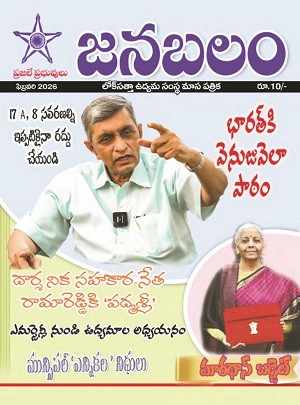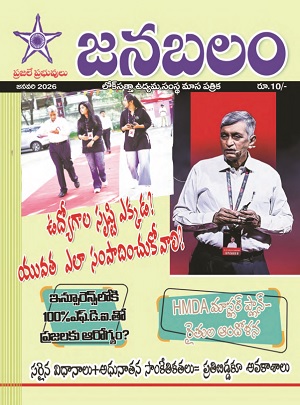The sixth session of the Indian Democracy at Work Conference 2021 on Rule of Law saw a distinguished panel deliberate on ways to get Speedy Justice in Trial Courts.
Justice G. Raghuram, Director, National Judicial Academy was the chair for this session. Dr. Jayaprakash Narayan, General Secretary, Foundation for Democratic Reforms, Justice R. C. Chavan, Vice Chairman, E-Committee of Supreme Court and Shri Atul Kaushik, Chief of Party, Asia Foundation. The main topics covered in this session were: 1. Establishing local courts in rural and urban areas 2. Building capacity - Increasing the judge to population ratio and strengthening use of technology and court administration 3. Clearing arrears in trial courts 4. Reinforcing the authority of the trial courts - contempt of court and perjury provisions
Dr. Jayaprakash Narayana set the agenda for discussion and said that he is concerned about need for fair, quick and affordable justice. There are 35 million cases pending in courts we have 18 judges per million population as opposed to 50 in many countries, only 14 are available. He added that people suffer injustice silently and the political discourse is only about vote-gathering and justice delivery is not given priority. He stated that local courts with summary procedures can render speedy justice at low cost, and can reduce burden on trial courts. Dr. JP drew from examples of USA and UK about small claims courts. Local courts can take care of 80% of the cases with some pecuniary and penal jurisdictions.
Justice G. Raghuram gave direction to the discussion. At the outset he said there are 2 kinds of people, one that come to the court and another that are brought to the court. The ones that come to the court seem to be more troublesome and ones brought to the court seem to be the victims, and this is not how it should be. A democracy must have robust justice delivery, failing which people lose faith. Reforms in the Judicial system starts with legal education and judicial recruitments. Justice Raghuram outlined the many failings in our judicial systems. He also suggested the need for psycho-social evaluations in recruitment of judges and other critical positions in the judicial system. He also emphasized that a complex society requires specialized knowledge and expertise in personnel working in the judicial system. An average law graduate is not competent enough to function as a lawyer, let alone be a judge. Training should be enhanced qualitatively. Faculty to judicial academies should be selected based on rigorous quality standards. Justice delivery must be seen as a service and must be subject to quality and efficiency standards. Currently, there are no consequences to making false statements and this should be changed where in false statements and perjury should be punished. He also added that Media trials also hampers the investigation process and trials.
Justice Chavan started with agreeing with all problems stated and some of the solutions proposed. He also added that adjudications must be evaluated for quality and be audited regularly. Political interference in charge-sheets and case filing disturbs the justice delivery of trial courts are not alert in these matters, it leads to injustice. There is also neglect of procedures by courts at all levels. He added that Interminable appeals and revisions are an issue and they delay the process. Adjudications at the trial courts are not complete and thorough and this does not build confidence in the system.
Mr. Atul Kaushik pointed out that the investment in the justice system is low with respect to the GDP of our country. He pointed out that we should ask a deeper question as to what our objectives should be for our justice system. On that front he suggested 4 interventions for speedy justice in trial courts: 1. Application of technology; 2. Process Reengineering; 3. Alternate Dispute Resolution and mediation and 4. Having specialized Court Managers and Court Clerks. He further explained that Technology application from document management to content management with transparency, efficiency and will build trust in the system. Process reengineering has to take 2 components: efficient case management and abandonment of legacy and redundant procedures that delay trials. Mr. Kaushik stated that alternative dispute resolution and mediation for simple cases ensure speedy justice.





No comments:
Post a Comment